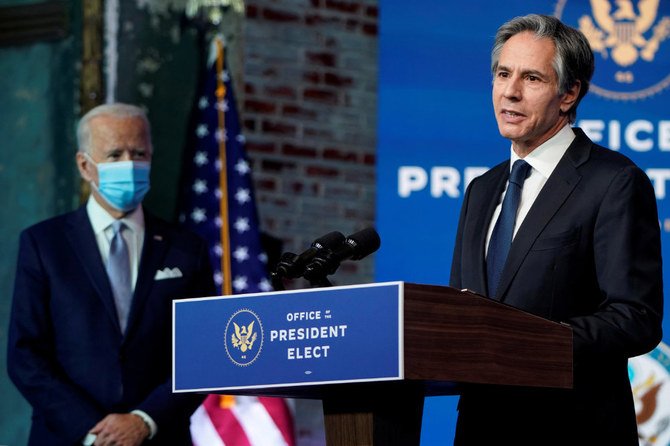
- ARAB NEWS
- 18 Jul 2025

As the Biden administration takes charge in America, it is clear that it is making adjustments to the country’s foreign policy. One change is attempting to restore relations with Iran after the Trump administration withdrew from the nuclear deal and began its “maximum pressure” strategy against Tehran.
The Biden White House has the conviction to criticize its predecessor’s policy toward Iran. But there is much speculation as to how its main foreign policy officials — such as former Secretary of State John Kerry, who is now in charge of climate change negotiations, Deputy Secretary of State Wendy Sherman, and National Security Adviser Jake Sullivan — stand with regard to Iran. They appear to have an initial strategy of renegotiating with Iran in an effort to remove its menace as a lonely, isolated and renegade state that would be more of a risk if it had nuclear weapons.
Coupled with Biden’s formation of a new US diplomatic approach to Iran is the worsening of the human rights situation inside that country. One example is the recent arrest of Iranian-American businessman Emad Sharghi, who had been sentenced to 10 years in prison on espionage charges.
He joins a long list of Iranians who have been sent to jail on spying indictments, with some of them having American or British citizenship.
The Biden administration is taking precautions in an effort to avoid provoking Iran’s anger on human rights questions. For example, it will not make the release of a number of Iranian-American prisoners a precondition for its potential resumption of negotiations with Iran over its nuclear capabilities.
The Biden administration is throwing itself into a very premature foreign policy conclusion. It is making an arbitration of Iran’s nuclear ambitions that is not wise. As a result, the US’ fortunes in the Middle East will decline.
Maria Maalouf
One should not expect anything substantial or purposeful out of this new American plan to have discussions with Iran over its nuclear buildup. The desire of Biden and his top officials to engage Iran will be outperformed by a theocracy that is firm in making it impossible for the international community to properly measure or evaluate its nuclear force. In addition, the renewed American take on Iran concerning its nuclear program will considerably outweigh the balance needed to ensure respect for human rights in Iran, as well as the duty of the US and the community of nations to monitor Iran’s adherence to their standards.
Kerry, Sherman and Sullivan, in particular, are giving the impression that they are acting in haste in reaching out to Iran. This is in contrast to the typical slow and methodical procedures that are the regular diplomatic norms in how countries start negotiating with one another. In this case, they are getting confused between what is urgent and what is practical. Their inclination to set up immediate talks is an appeal — if not an appeasement — to Iran to not be too threatening to regional and global stability. In negotiating with any partner, there is always the desire to change its behavior. There is little hope that America negotiating with Iran will alter the latter’s behavior.
A major problem in negotiating with Iran is that it does not want to give proof that its nuclear program is not for military purposes. Hence, any countries negotiating with it are making bets as to what the ultimate outcome of Iran’s nuclear activity is. The more you negotiate with Iran, the less clear its intentions are.
The Biden administration is throwing itself into a very premature foreign policy conclusion. It is making an arbitration of Iran’s nuclear ambitions that is not wise. As a result, the US’ fortunes in the Middle East will decline.
• Maria Maalouf is a Lebanese journalist, broadcaster, publisher, and writer. She holds an MA in Political Sociology from the University of Lyon. Twitter: @bilarakib